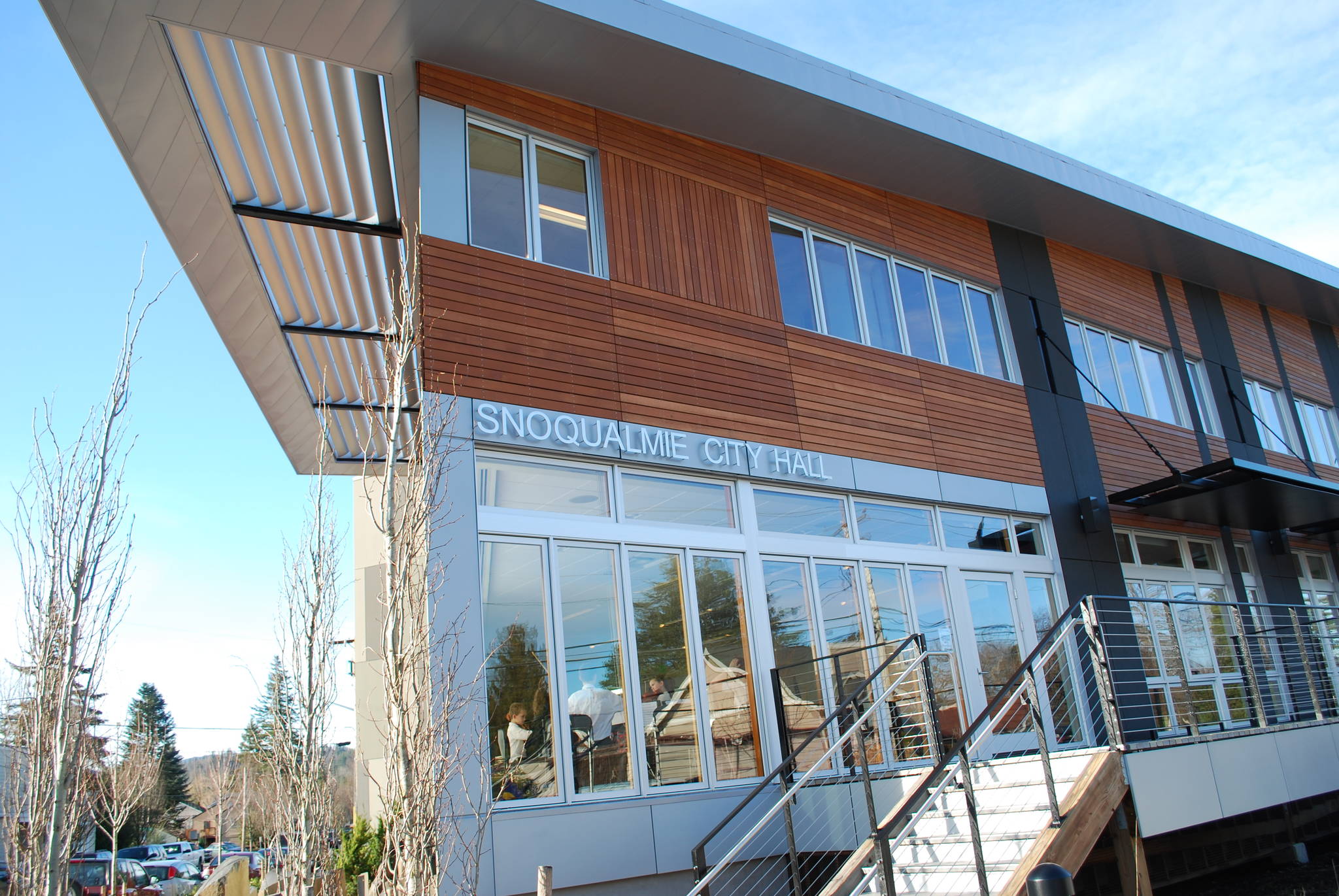The Snoqualmie City Council discussed subdivision regulation changes at its April 22 regular council meeting and considered a date for an upcoming mid-May town hall.
Introduced that night was an ordinance to amend the city’s Plat Procedure Code, which outlines how a city processes applications to subdivide property.
The amendment would update certain aspects of the code, such as widening the radius for which notice of a plat is mailed to residents within 300 to 500 feet and also increasing the public comment period.
One big question brought up related to the role of a hearing examiner and city council in the decision making process. Currently, preliminary plats are approved by city council decision and have no administrative appeal process. The proposed change would have the hearing examiner make the decision and any appeals would go to the city council.
In discussion, some concerns about changing to a hearing examiner were voiced by Councilmember Peggy Shepard. She said hearing examiners rarely disagree with staff rulings and was concerned that a hearing examiner would act as a rubber stamp for the plat process.
Senior planner Jason Rogers said that because plat approval is quasi-judicial it means that a council or hearing examiner cannot change any requirements or impose on the plat. They must apply the city code exactly as it reads. Any opportunity to change the requirements or code would have to be done outside of the approval process as part of the standard legislative practices of a council.
Shepard also referenced a previous hearing examiner decision regarding parking for affordable housing development. She said the examiner acted based on the comment of traffic engineers over a member of the public who also had experience in the field.
Rogers said hearing examiners often weigh experts giving an official professional testimony along with public comment, basing the weight of each on credibility and if information presented would inform the land use decision.
“One of the main reasons why we propose using a hearing examiner is that the hearing examiner is not a political animal,” he said. “They are there to implement what the (city) code says in their best judgment. The council is generally a political body. You legislate and so the council is subject to all those political pressures.”
While the Snoqualmie City Council and councils around the region correctly make quasi-judicial decisions all the time, Rogers said separating the council from judicial judgments would give the council more time to do its intended legislative work.
“It’s not that you can’t or are incapable, but taking the council out of a lot of land use makes it generally easier for the council to operate and allows the council to focus on the legislative and policy items that are more within your wheelhouse,” he said.
If a project doesn’t conform with city vision or planning, the council must make those changes to city code outside of the plat process.
No decision was made that night, but the ordinance will return to the council for more discussion and a decision at its meeting on May 13.
The council also continued planning for an upcoming town hall meeting where the public will be invited to ask questions regarding city topics and ongoing projects. Councilmember Bob Jeans updated the council on the process of planning the quarterly town halls.
A date is yet to be determined, but the schedule will aim to have as many city councilmembers in attendance as possible. May 19 was set as a preliminary date for the meeting, but because of scheduling conflicts not all the councilmembers could attend.
The council unanimously voted to consider other dates and if nothing else worked the date would revert back to May 19.


